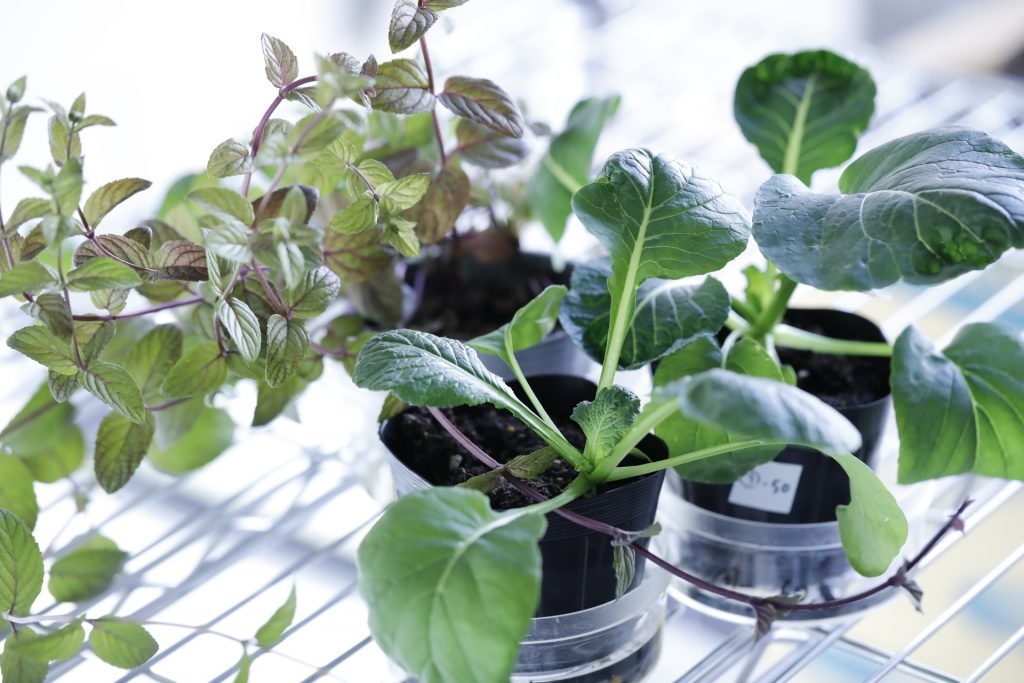Did you know that one out nine people in the world suffers from starvation? Research aimed at fighting starvation is being undertaken worldwide, not just to sustain life but also to enable health, social functioning.
One such initiative is the pest-related crop damage mitigation research being pursued by the Arimura Laboratory in the Faculty of Advanced Engineering’s Department of Biological Science and Technology.
The agricultural produce that we eat every day is subject to a great deal of pest-related damage. This damage is particularly pronounced in those areas where agrochemicals are hard to obtain. By mitigating damage to agricultural products, this will likely help in alleviating the causes of starvation and food scarcity.
Towards this end, the Arimura Laboratory is working on pest-free agriculture that does not rely on agrochemicals.

The key to pest-free agriculture that does not rely on agrochemicals is “mint.”
Most plants take defensive action against insects when their leaves are eaten by insects. This is true of mint, which releases a powerful scent to drive off insects that eat its leaves.
“What is interesting,” explains Professor Arimura, “is that the surrounding plants will also react to the scent of the mint plant by activating their own defense mechanisms against insects.”
Plants which would normally take defensive measures only when starting to be eaten by insects will, when exposed to scent released by the mint plant, all start taking defensive measures even though they are not being eaten.
Experimental results have shown that these self-defense measures greatly reduce the amount of pest-related leaf damage. This, in turn, cut down on agrochemical usage by half.
“Among us researchers, we refer to this as ‘eavesdropping.’ Are the plants surrounding the mint plants and other plants being eaten overhearing their warning about insects?” asks Professor Arimura. When humans communicate with one another we use words, but perhaps plant communicate via scent?
Food quality is an important part of the second sustainable development goal of “Zero Hunger.” And organic agriculture has a small environmental footprint while providing healthy agricultural produce filled with a range of nutrients.
■ Main research content